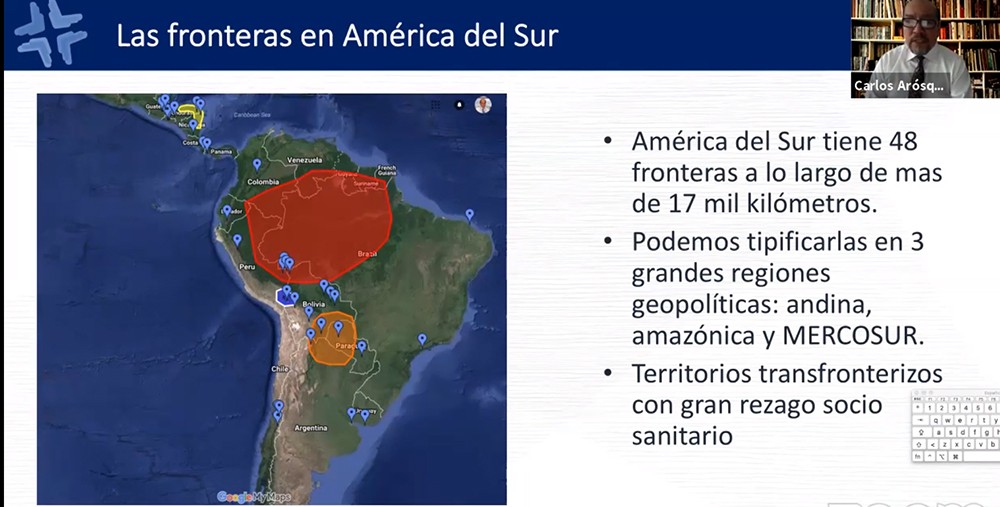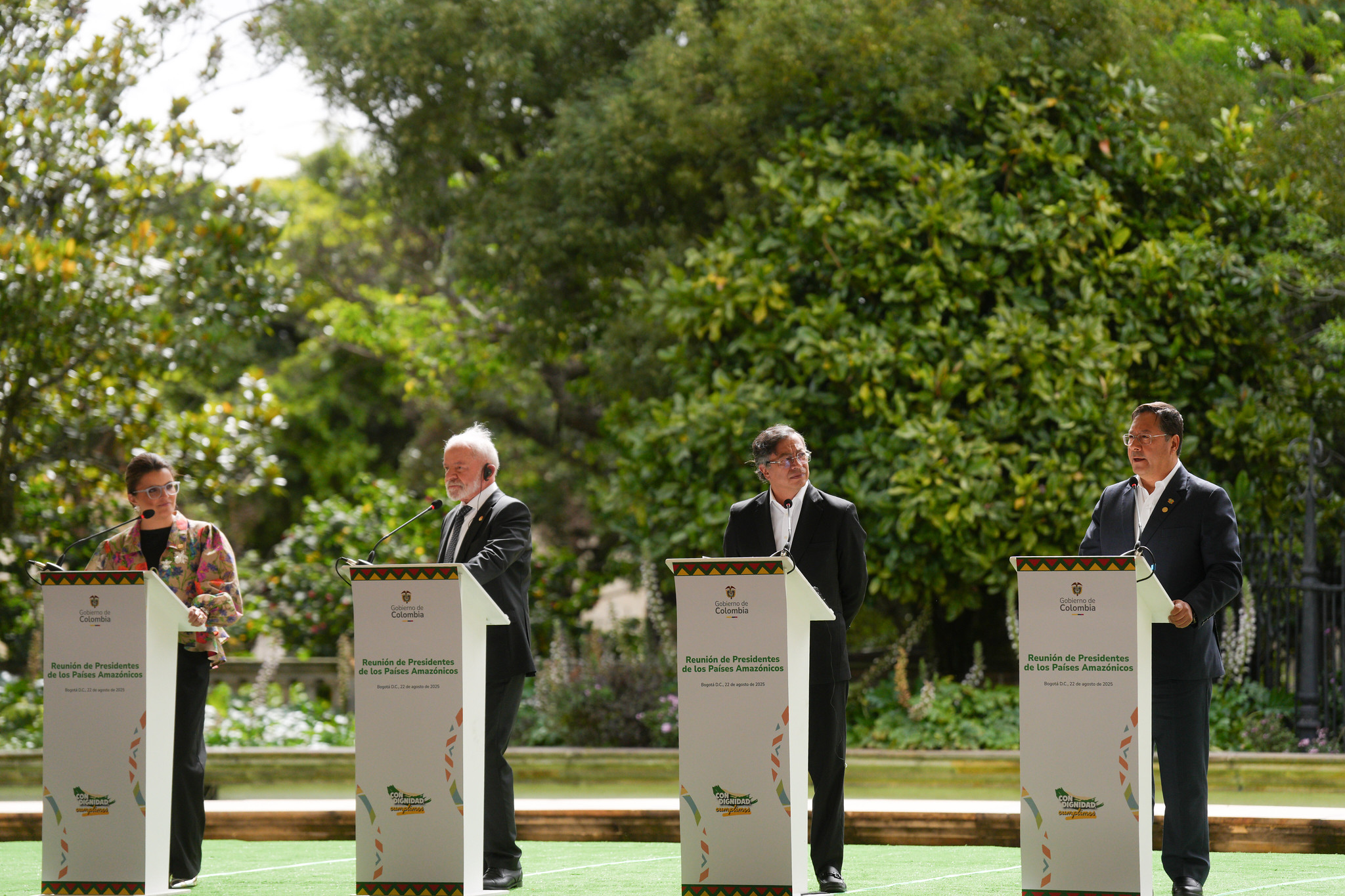During the third webinar held by the Amazon Cooperation Treaty Organization (ACTO) and the South American Sub-regional Program of the Pan American Health Organization (PAHO SAM) speakers agreed that coordinated surveilance is essential for border work.
On August 28, 2020, within the framework of the call made by ACTO and PAHO/SAM, the main cooperation and integration organizations of South America presented the experiences and efforts that they have been carrying out on the borders of South America in relation to health management and epidemiological surveillance, to promote health and brotherhood in the border areas, by seeing these become a space for integration and development.
The Andean Health Organization- Hipólito Unanue Agreement (ORAS-CONHU) of the Andean countries (CAN), the Southern Common Market (MERCOSUR), the Economic Commission for Latin America (ECLAC), the Mercosur Social Institute (ISM), the Osvaldo Cruz Foundation (FIOCRUZ), PAHO (Pan America Health Organization) and the ACTO (Amazon Cooperation Treaty Organization) were present.
In particular, the existing coordination processes in the work at the binational and trinational levels were identified, and in several borders there were shared and fully articulated jobs (MERCOSUR), as well as efforts in the development of health plans focused on border populations (ORAS CONHU), and regional coordination for the development of regional frameworks, guidelines and strategies to support indigenous populations in border regions, with an emphasis on isolated peoples and initial contact-PIACI (ACTO).
ECLAC highlighted the important challenges of the region in relation to health management in the context of the COVID 19 pandemic, and FIOCRUZ presented its important work on border health management, with emphasis on the Amazon Region. The ISM highlighted the role of civil society organizations for youth on the borders. Antenor Vas, indigenous consultant, referred to important aspects to consider in order to strengthen protection systems for the PIACI.
Keywords such as cooperation and integration were repeated by the speakers, who in turn agreed that coordinated surveillance is essential for border work, which includes the strengthening of human resources, infrastructure, sufficient financing management, optimal management of the health surveillance, the differentiated development of capacities, the training of health professionals and community health agents, as well as the importance of working on the training of youth.
The challenges to deal with COVID 19 in border regions were also identified, detecting that the pandemic has forced to review health planning and management efforts, being a short-term challenge the opening of borders, and in that context the reinforcement of epidemiological surveillance to ensure that the flow of circulation of people and goods does not generate a resurgence of COVID 19 in our countries.
The speakers and commentators agreed on the need to strengthen an integration and cooperation agenda that allows facing existing challenges, taking into account the lessons learned, especially in the current times of confrontation with the COVID 19 pandemic.
Source: ACTO


